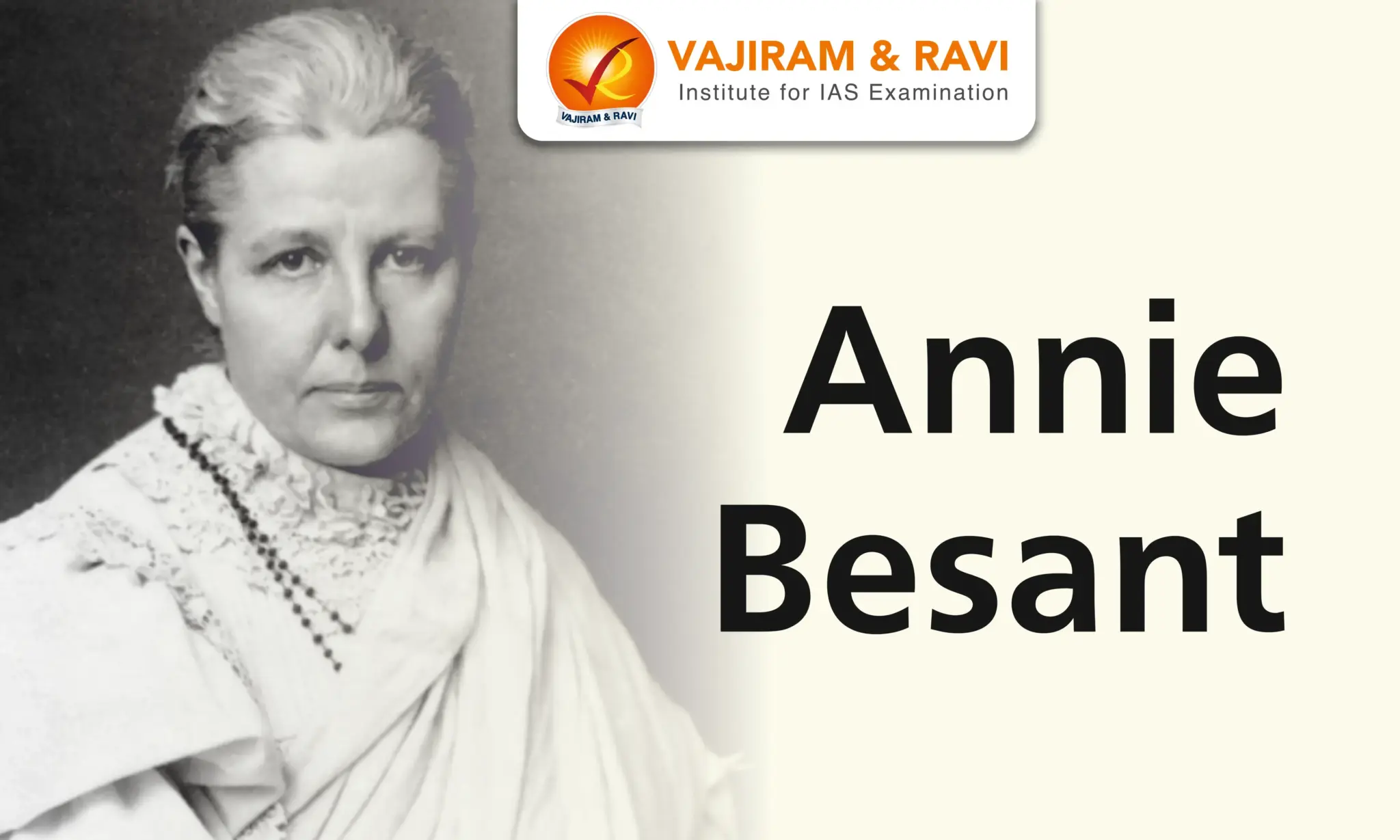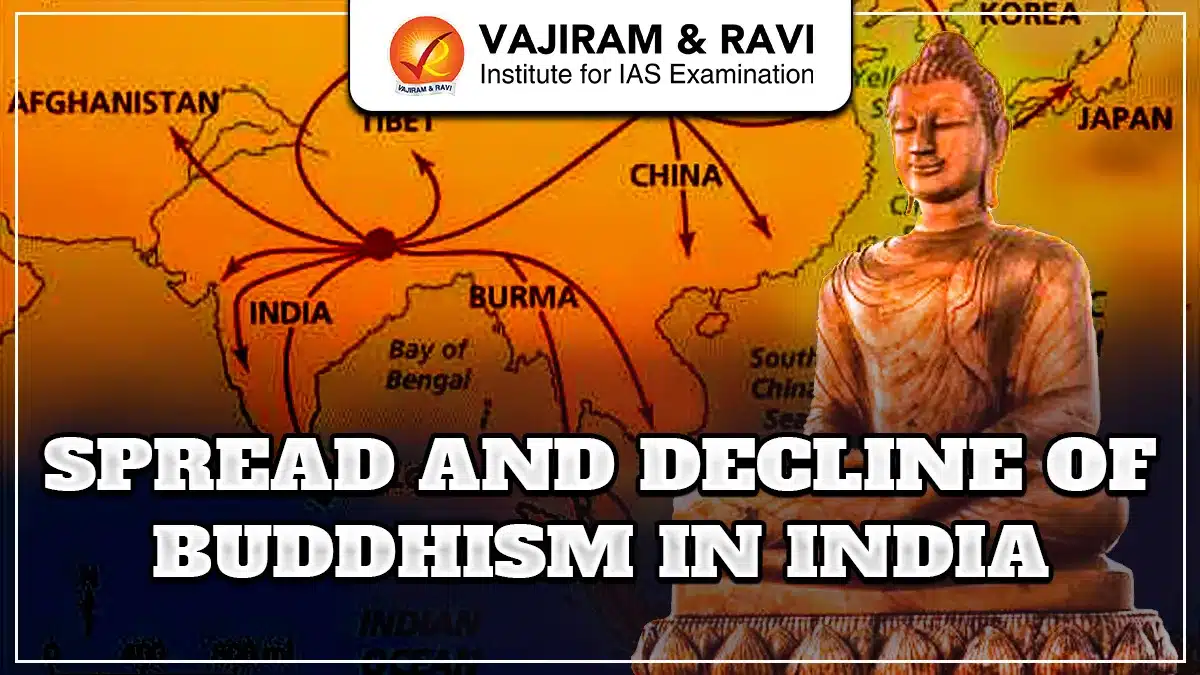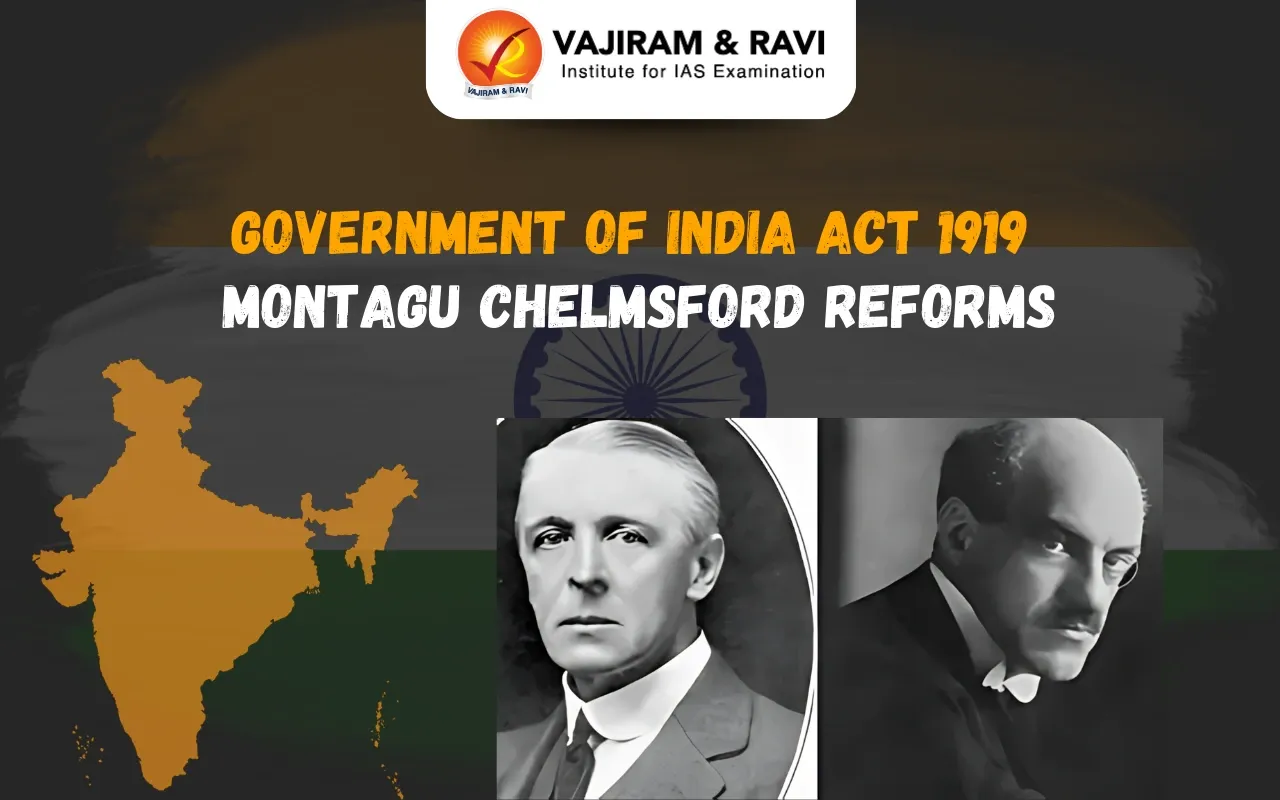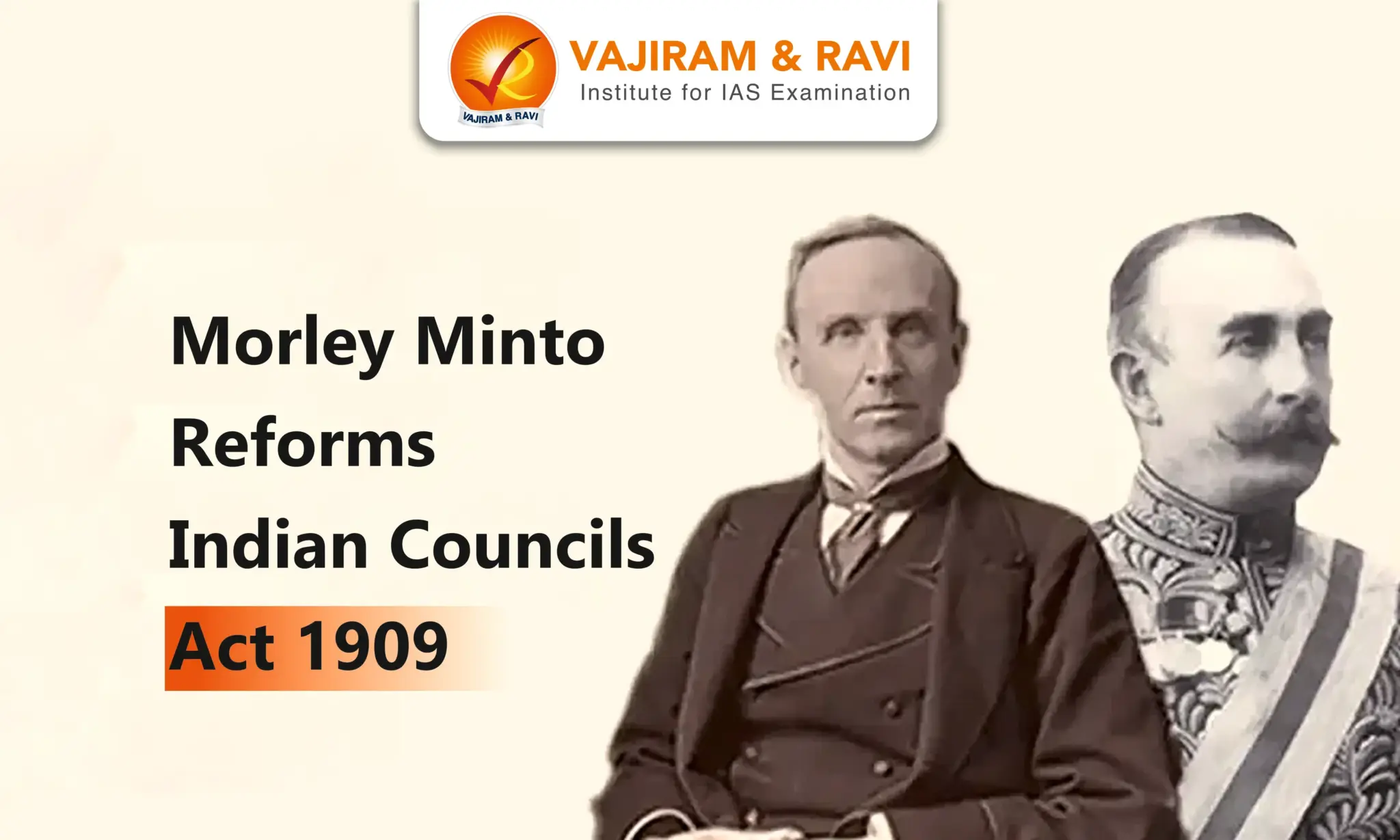Annie Besant was a British social reformer and activist whose work left an indelible mark on Indian history. Renowned for her leadership in the Theosophical Society, Besant played a pivotal role in the revival of theosophy. Her efforts in education played a significant role in establishing many educational institutions in India, including those focused on women’s education.
Annie Besant passionately advocated for Indian self-rule, becoming a key figure in the Home Rule Movement. Her involvement also included presiding over the Indian National Congress session in 1917. Her leadership and dedication to India’s cause contributed to the broader struggle for independence.
Annie Besant Early Life
Annie Besant was born to an Irish family in London, England on October 1, 1847. Raised in a strict Christian household, she faced early challenges that shaped her future activism. She attended Harrow School with the support of her mother following the death of her father. Her early education was eclectic, reflecting both her mother's religious teachings and her growing interest in broader philosophical and social issues.
Annie Besant Theosophical Society
Annie Besant's engagement with the Theosophical Society began in 1889 when she joined the organization, which sought to explore spiritual philosophies and promote universal brotherhood. The Society was founded by Helena Petrovna Blavatsky and Henry Steel Olcott, and Besant quickly emerged as a leading figure.
- She represented the Theosophical Society at the Chicago World Parliament of Religions in 1893.
- Annie Besant became the second International President of the Theosophical Society in 1907 following the death of Col. H. S. Olcott. She kept this position until she died in 1933.
Annie Besant Contribution
Annie Besant's contributions to India span across multiple fields, including social reform, education, and political activism. A passionate advocate for self-rule, she became one of the leading figures in the Indian independence movement. Her activism extended to her work in promoting theosophical ideals and fostering educational opportunities, all aimed at uplifting Indian society.
Annie Besant Home Rule Movement
Annie Besant's involvement in the Home Rule Movement marked a turning point in her political career. In September 1916, Annie Besant along with Bal Gangadhar Tilak established the All-India Home Rule League to promote the idea of "Home Rule," similar to the self-government enjoyed by Ireland. This became a powerful platform for advocating Indian self-governance. The league influenced most parts of India.
Annie Besant President of INC
In 1917, Annie Besant was elected the President of the Indian National Congress (INC) Calcutta session, becoming the first woman to hold this position. Her presidency marked a pivotal moment in the struggle for Indian independence, as she used her platform to advocate for constitutional reforms and greater political rights for Indians. Her campaign and the pressure of public opinion contributed to the enactment of the Montagu-Chelmsford proposals by the British Parliament.
Annie Besant's Contribution to Education
Annie Besant’s contributions to education were profound. In 1898, she founded the Central Hindu College in Benares (now Varanasi) intending to inspire pride in India’s cultural heritage while preparing students for modern challenges. Theosophists from abroad assisted in this effort, and the institution eventually became the foundation for Banaras Hindu University. She also established the Central Hindu School for Girls in Varanasi, advancing female education in India.
Annie Besant Legacy
As a prominent Theosophist, Annie Besant significantly influenced the spiritual and philosophical landscape of her time. Her leadership in the Home Rule Movement and her presidency of the INC contributed to India's eventual independence. Additionally, her work in education laid the groundwork for future reforms and institutions in India.
Annie Besant PYQs
Question 1) Annie Besant was
- responsible for starting the Home Rule Movement
- the founder of the Theosophical Society
- once the President of the Indian National Congress
Select the correct statement/statements using the codes given below. (UPSC Prelims 2013)
(a) 1 only (b) 2 and 3 only
(c) 1 and 3 only (d) 1, 2 and 3
Ans: (c)
Last updated on February, 2026
→ UPSC Notification 2026 is now out on the official website at upsconline.nic.in.
→ UPSC IFoS Notification 2026 is now out on the official website at upsconline.nic.in.
→ UPSC Calendar 2026 has been released.
→ Check out the latest UPSC Syllabus 2026 here.
→ Join Vajiram & Ravi’s Interview Guidance Programme for expert help to crack your final UPSC stage.
→ UPSC Mains Result 2025 is now out.
→ UPSC Prelims 2026 will be conducted on 24th May, 2026 & UPSC Mains 2026 will be conducted on 21st August 2026.
→ The UPSC Selection Process is of 3 stages-Prelims, Mains and Interview.
→ Prepare effectively with Vajiram & Ravi’s UPSC Prelims Test Series 2026 featuring full-length mock tests, detailed solutions, and performance analysis.
→ Enroll in Vajiram & Ravi’s UPSC Mains Test Series 2026 for structured answer writing practice, expert evaluation, and exam-oriented feedback.
→ Join Vajiram & Ravi’s Best UPSC Mentorship Program for personalized guidance, strategy planning, and one-to-one support from experienced mentors.
→ UPSC Result 2024 is released with latest UPSC Marksheet 2024. Check Now!
→ UPSC Toppers List 2024 is released now. Shakti Dubey is UPSC AIR 1 2024 Topper.
→ Also check Best UPSC Coaching in India
Annie Besant FAQs
Q1. What was Annie Besant famous for?+
Q2. Is Annie Besant a freedom fighter of India?+
Q3. Is Annie Besant the first president of the Indian National Congress?+
Q4. Which newspaper was published by Annie Besant?+
Q5. What is the name of the female school established by Annie Besant?+
Tags: annie besant home rule movement quest theosophical society


















